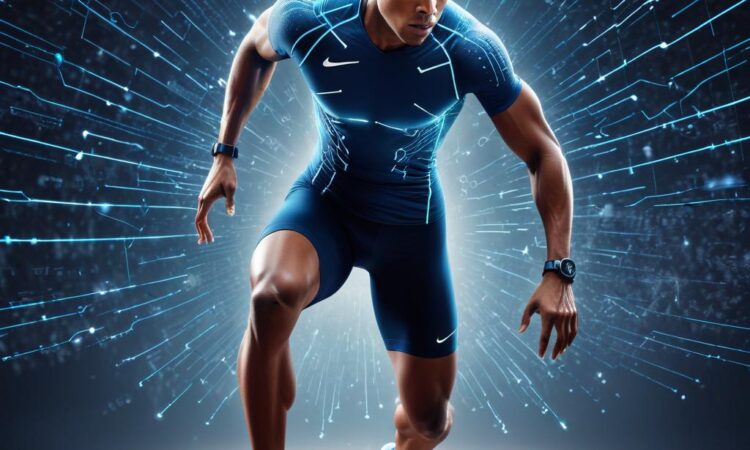The Impact of AI in Sports
Discussions surrounding the potential use of AI for athlete training, injury prevention, and performance analysis are gaining momentum, raising ethical concerns and sparking debate about its role in the future of sports.
AI in Athlete Training
AI is transforming the way athletes train, offering personalized programs tailored to individual strengths, weaknesses, and goals. AI-powered platforms can analyze vast amounts of data, including biomechanics, performance metrics, and even sleep patterns, to identify areas for improvement and develop customized workout routines. This personalized approach has the potential to optimize training efficiency and accelerate progress, allowing athletes to reach their full potential faster.
For example, AI algorithms can analyze video footage of athletes’ movements to identify subtle errors in technique that may be overlooked by human coaches. This feedback can be used to refine form and reduce the risk of injuries. AI can also track an athlete’s progress over time, identifying patterns and trends that can help predict future performance and adjust training plans accordingly.
AI in Injury Prevention
The use of AI for injury prevention is a rapidly growing field. AI algorithms can analyze data from wearables, such as smartwatches and fitness trackers, to identify potential risks of injury. This data can include factors like heart rate variability, sleep quality, and training load. By detecting early warning signs of injury, AI can help athletes and coaches take preventive measures, such as modifying training programs or scheduling rest days. This proactive approach can significantly reduce the incidence of injuries and help athletes stay healthy and perform at their peak.
Furthermore, AI can assist in the diagnosis and treatment of injuries. Machine learning algorithms can analyze medical images, such as MRI scans, to identify abnormalities and assist doctors in making accurate diagnoses. AI can also provide personalized rehabilitation programs, tailored to the individual’s needs and injury severity.
AI in Performance Analysis
AI is revolutionizing the way sports are analyzed. By processing massive amounts of data from various sources, including video footage, sensor data, and player statistics, AI algorithms can generate insights that were previously impossible to obtain. This data can be used to identify patterns in player behavior, predict game outcomes, and optimize team strategies.
For instance, AI can analyze video footage of matches to track player movement, identify passing patterns, and assess the effectiveness of different tactics. This information can be used by coaches to make tactical adjustments during games and develop more effective strategies in the long term.
AI can also analyze real-time data from wearable devices and other sensors to track player performance during games. This data can provide insights into player fatigue, heart rate, and other physiological factors, allowing coaches to make informed decisions about substitutions and game management.
Ethical Concerns
Despite the immense potential of AI in sports, there are significant ethical concerns that need to be addressed. One major concern is the potential for bias in AI algorithms. If algorithms are trained on data that is biased, they may perpetuate existing inequalities and create unfair advantages for certain athletes or teams.
Another concern is the impact of AI on the role of human coaches. Some argue that AI could replace coaches altogether, leading to a loss of human interaction and mentorship. However, others believe that AI can enhance the role of coaches, providing them with data-driven insights and freeing them up to focus on more strategic aspects of the game.
There are also concerns about the potential for AI to be used to manipulate or exploit athletes. For example, AI could be used to predict injuries, potentially allowing teams to pressure athletes to play despite being injured. It is crucial to ensure that AI is used ethically and responsibly, with the well-being of athletes as a top priority.
The Future of AI in Sports
The future of AI in sports is bright, with ongoing advancements in technology and an increasing adoption of AI-powered solutions. AI is likely to play an even more significant role in all aspects of sports, from training and injury prevention to performance analysis and scouting.
It is important to acknowledge the ethical considerations surrounding AI and to ensure that its use is aligned with the values of fair play, athlete safety, and the integrity of the game. As AI continues to evolve, it will be crucial for the sports industry to work collaboratively to establish ethical guidelines and best practices for its use.
Conclusion
AI is transforming the sports landscape, offering unprecedented opportunities for athletes, coaches, and fans alike. However, it is crucial to approach the use of AI with caution, addressing ethical concerns and ensuring its use is responsible and beneficial for all involved. The future of sports will be shaped by AI, and it is up to us to ensure that its impact is positive and lasting.

